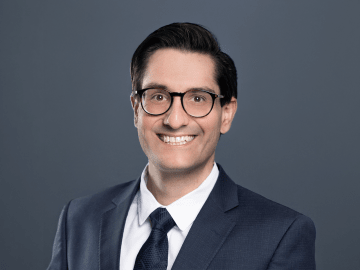The Swiss Federal Court decision 9C_643/2022 of July 24, 2023 has an interesting impact on the deduction of lump-sum professional expenses that can be claimed in Swiss tax returns for persons who perceived a representation allowance as part of their remuneration.
Until now, several Federal Court decisions (notably 2C_326/2008 of September 23, 2008 and 2C_73/2019 of October 9, 2020) had established that the representation allowance received by an employee to compensate for expenses incurred in the course of his or her professional activity, in particular the representation allowance, was deemed to cover all expenses actually incurred by the employee. Thus, the additional deduction provided for in art. 26 para. 1 let. c LIFD for "other professional expenses" was not allowed.
However, in the light of decision 2C_804/2021 of October 14, 2022, confirmed and developed by decision 9C_643/2022, the Federal Court has adopted a different position. It makes a clear distinction between:
- Intervention expenses, i.e. costs incurred by the employee when acting in the name and on behalf of his employer (missions, representations, compulsory travel), which are covered by reimbursements or lump-sum representation allowances ;
- Other professional expenses, such as meals, transport or other costs incurred in the normal course of business, which are borne by the employee and may be deducted within the limits set by cantonal and federal law.
Thus, reimbursements provided for an employee expenses regulation plan approved by a cantonal tax authority are deemed to cover intervention costs related to the employer's direct interests, but do not replace the possibility of deducting other professional expenses. As a result, employees receiving lump-sum entertainment expenses are also entitled to deduct other professional expenses. This clarification calls into question certain cantonal practices, notably those of the cantons of Ticino and Vaud, which tended to systematically refuse such deductions.
Update on recent practice
In a circular dated May 1, 2024, the Swiss Tax Conference (CSI) clarified the intercantonal scope of expense regulations. Henceforth, an employee's canton of residence is bound by the expense regulations approved in the employer's canton of residence only if certain conditions are met:
- compliance with CSI model regulations,
- capping of lump-sum reimbursements (CHF 24,000 per year, max. 5% of gross salary),
- consideration of actual expenses incurred.
This clarification reinforces the idea that representation allowances do not cover other professional expenses, which remain deductible separately.
Clarification of decision 9C_723/2023 of March 28, 2024
In a recent case involving a taxpayer from the canton of Vaud, the Federal Court found the refusal to deduct ‘other professional expenses’ to be justified. In this case, the taxpayer had failed to provide sufficient evidence and had refused to cooperate with the tax authorities (mainly by failing to provide his salary certificates). The Federal Court ruled that the tax authorities were entitled to reject his claims for lack of cooperation.
In our view, this decision should be interpreted as a purely circumstantial and punitive decision, linked to the taxpayer's failure to fulfill his duty to cooperate, and not as a reversal of case law. It does not, therefore, call into question the position set out in 9C_643/2022 or the CSI guidelines: the possibility of deducting other professional expenses remains open, provided the taxpayer can prove this.
To sum up, current federal case law accepts that :
- Lump-sum representation allowances cover only those expenses incurred in the name and on behalf of the employer.
- Other professional expenses (art. 26 al. 1 let. c LIFD) can be deducted separately, even in the presence of a lump-sum representation allowance, provided they can be proven.
- Decision 9C_723/2023 does not change this rule but firmly reiterates that the taxpayer's failure to cooperate may justify a refusal to deduct.
- The CSI guidelines of May 1, 2024 reinforce this framework by limiting the intercantonal scope of expense settlements.
Current practice seems to indicate that the canton of Vaud has resumed its practice of systematically disallowing other professional expenses in the presence of representation allowances, thus interpreting the decision 9C_723/2023 as a reversal of jurisprudence. Unfortunately, these decisions will have to be challenged, and we may have to go all the way back to the Federal Court to obtain a new decision on the matter.










